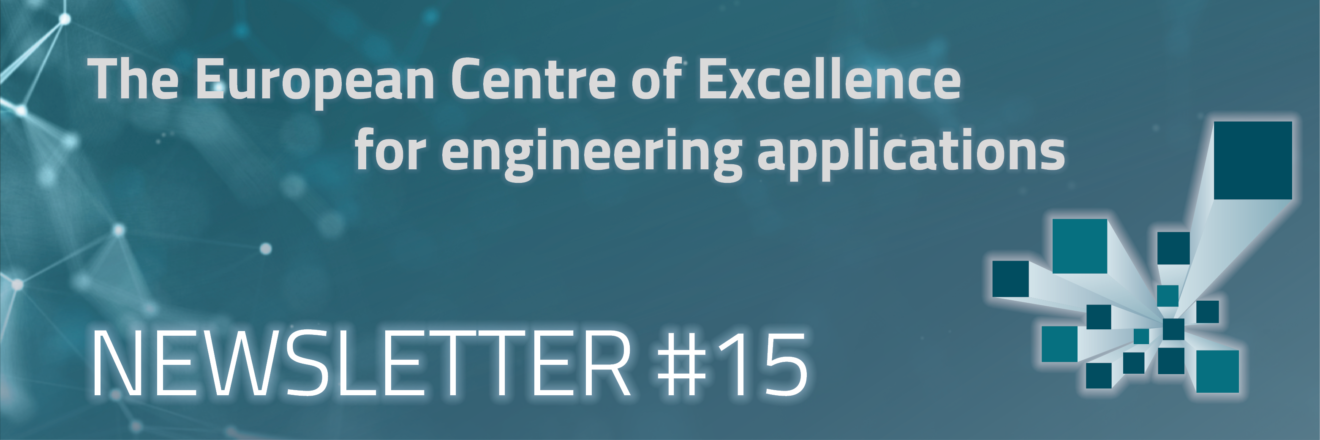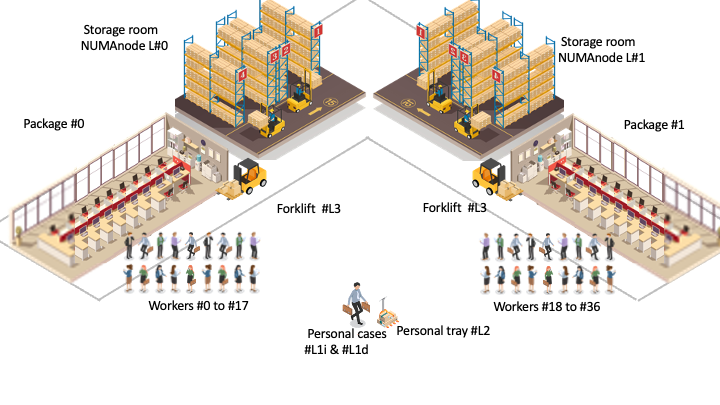|
|
|
|

|
Content
|
2. Blog article: An analogy to understand supercomputers
|
3. Podcast: Nuclear fusion research
|
|
|
|
|
|
1. Welcome
|
Spring has officially started and so has the event season. We are happy to have been part of the EuroHPC Summit in Gothenburg at the end of March, and are already preparing for ISC High Performance in Hamburg - one of the key events of the international supercomputing community - taking place on 21-25 May 2023. Meet our (new and older) staff members at the EuroHPC JU booth number B201 and learn more about other Centres of Excellence.
|
In this issue of our newsletter, you can find out more about our latest podcast episode about our new use case on nuclear fusion research, and get information about upcoming (training) events.
|
I hope you enjoy reading our newsletter and continue to follow our updates!
|
|
EXCELLERAT P2 Project Coordinator
|
|
|
|
2. Blog article: An analogy to understand supercomputers
|

|
|
This blog article aims to explain how supercomputers work in a comprehensive way, using the analogy of a town. A supercomputer can be seen as an entire town of business offices available for any computation contract. Read the article, which also includes an expert’s corner with an application to a real computer.
|
|
|
|
3. Podcast: Nuclear Fusion Research
|

|
|
We have produced the fifth episode of our HPC podcast and the first one in EXCELLERAT P2. This time, it's all about nuclear fusion research and in particular the engineering design and digital twin of the first wall of fusion tokamak - one of our new use cases. We interviewed Matic Brank from University of Ljubljana, who recently joined the project team. Listen to the episode on SoundCloud.
|
|
|
|
4. Further news & events
|
ISC High Performance 2023
|
|
(21-25 May 2023, Hamburg, Germany)
|
EXCELLERAT P2 will participate in the ISC High Performance 2023 - one of the core HPC events. ISC High Performance will take place in Hamburg (Germany) from May 21-25, 2023. EXCELLERAT will be represented at the EuroHPC Joint Undertaking (JU)'s booth B201, along with further funded projects and in particular other European Centres of Excellence, EuroCC 2, and CASTIEL 2. Meet our representatives at the booth and don't miss the EXCELLERAT presentation given by our Project Coordinator, Dr. Bastian Koller, on Wednesday 24 May, at 11:15-11:45 at the booth. More information
|
We have recently launched a YouTube channel – subscribe for multimedia updates.
|
Training course: From machine learning to deep learning
|
This course addresses students, data scientists, and researchers who would like to have an introduction to Machine and Deep Learning methods to solve challenging and future-oriented problems. Both Machine and Deep Learning methods and examples as well as a method for data compression will be presented. Different examples are shown via hands-on sessions on an HLRS cluster. However, please be aware that this course is not a sequence of beginners-to-advanced lectures about theoretical aspects of AI. Register now
|
|
Training course: Data analytics for engineering data using machine learning
|
|
(12-14 June 2023, online)
|
This three-day online workshop addresses the preparation, analysis and interpretation of numerical simulation data by machine learning methods. Besides the introduction of the most important concepts like clustering, dimensionality reduction, visualization and prediction, this course provides several practical hands-on tutorials using the python libraries numpy, scikit-learn and pytorch as well as the SCAI DataViewer (see also the SimExplore tool). Register now
|
14. InnovationForum Smarte Technologien & Systeme
|
|
(15 June 2023, Donaueschingen, Germany)
|
The 14th InnovationForum Smart Technologies and Systems will be a local platform for exchange on artificial intelligence and smart software, as well as hardware at a wide range of presentations and exchange ideas about future trends. Anne-Bernard Bedouet (Sicos BW) will present EXCELLERAT in the Digitalisation session. Learn more
|
|
Self-paced course: Approaches to analysing time-series data
|
|
Tourist destination managers, service providers, and researchers want to better understand traffic flows: what impact traffic flows have, when do traffic peaks occur, what are the seasonal effects, which areas are more / less congested with tourists, how do weather, holidays and other events affect this behaviour. With the help of data analysis and forecasts, they can prepare for periods of increased visits, as well as adjust marketing activities, service offerings, or resources allocation. In this tutorial we look at a real-world dataset consisting of traffic counters on Slovenian roads, provided by the Slovenian Road Network (DARS), and its application to the questions above. Get access to the tutorial through our Service Portal.
|
|
|
|
|
|

|
|
Funded by the European Union. This work has received funding from the European High Performance Computing Joint Undertaking (JU) and Germany, Italy, Slovenia, Spain, Sweden, and France under grant agreement No 101092621.
|
Höchstleistungsrechenzentrum Stuttgart (HLRS) | Nobelstraße 19
|
|
70569 Stuttgart | Germany
|
|
|
|
|
|
|